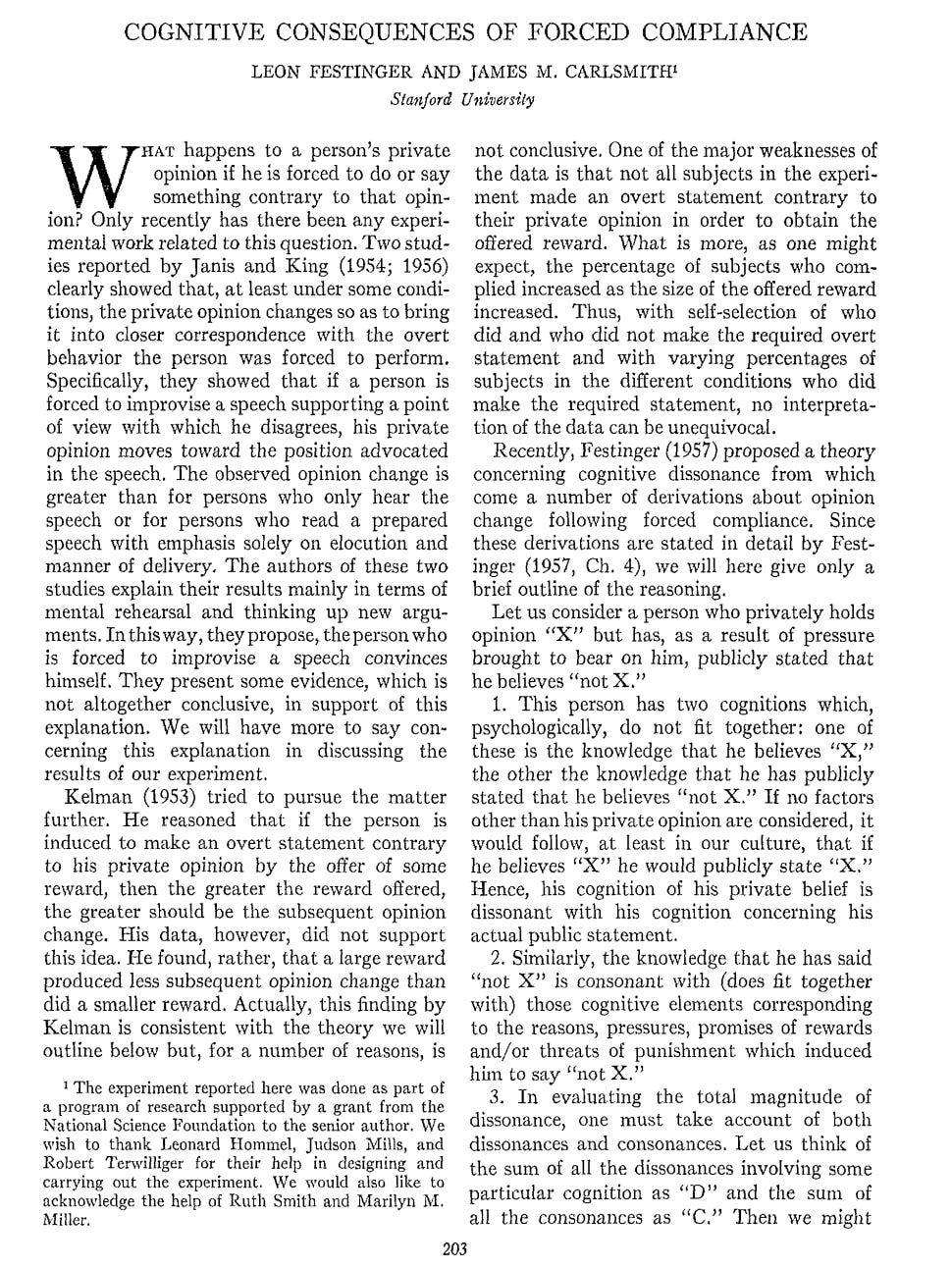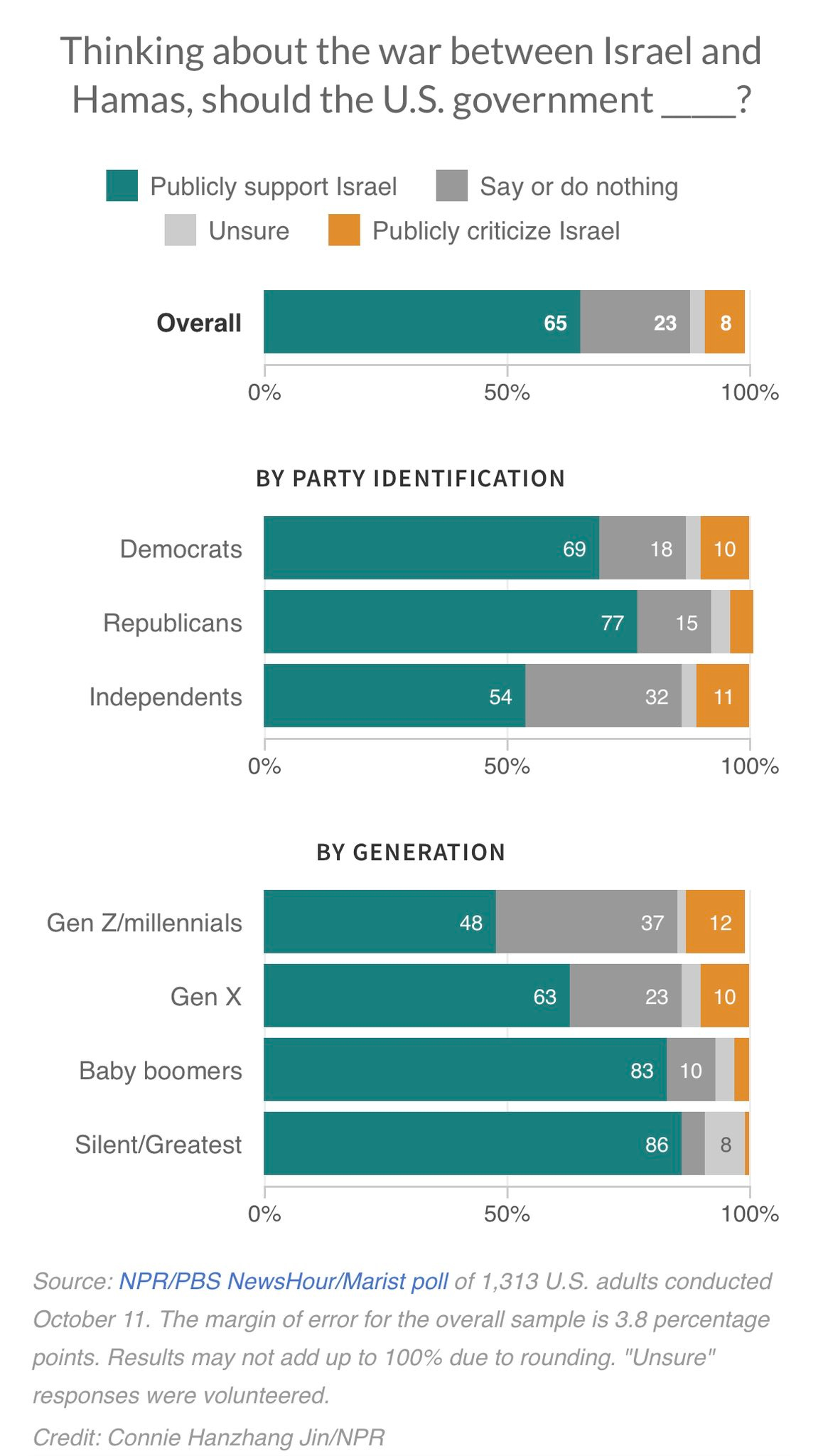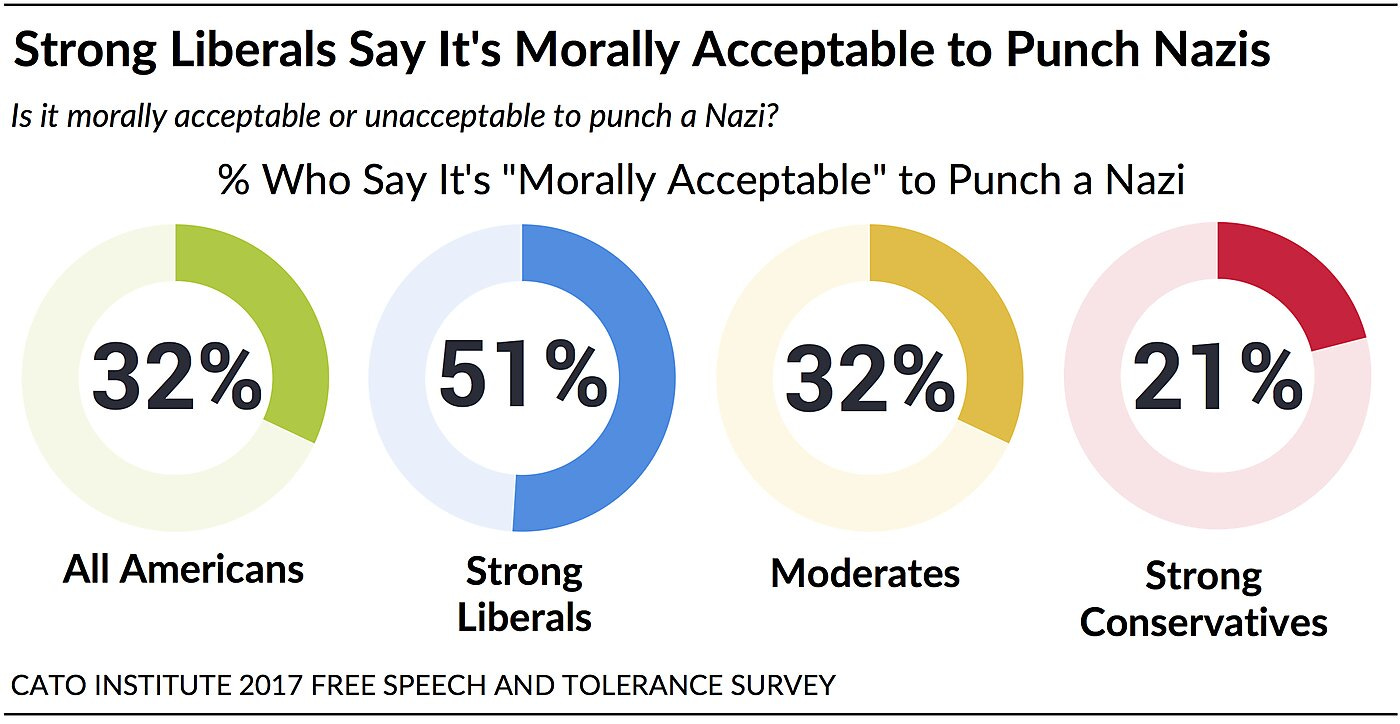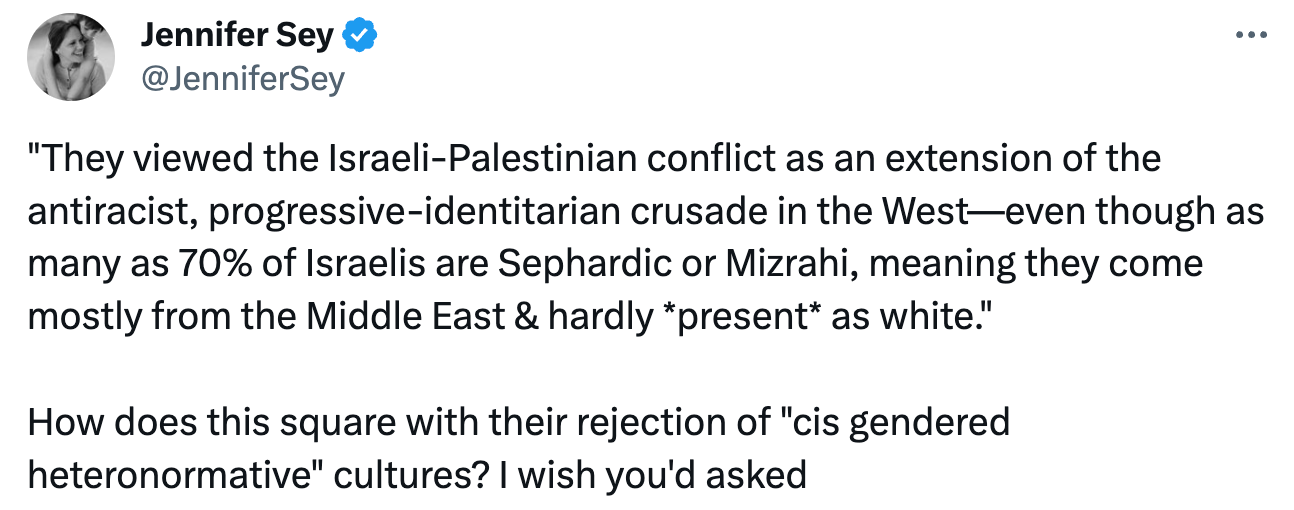Generational Cognitive Dissonance & the Israeli-Hamas Conflict
GenZ & Millenials seems to ignore certain things older generations take for granted... and how that may be explained by the phenomenon of 'woke culture' and the phenomenon of cognitive dissonance
(TRIGGER WARNING - I am unashamedly pro-Israeli, and against anti-semitism in all it’s forms. I have been very emotional about the terrorist attacks on civilians in Israel by Hamas, and infuriated by a lot of the response to it here at home. If you think you might be really bothered by my positioning on this - you should skip this article. I’ll try to keep most of my more emotional ranting on Twitter / X in the future.)
************
Human beings are largely narrative machines. In order to function with some degree of comfort in our daily lives, we need to have a coherent story that governs what we believe, and why we do what we do in our daily lives.
A pretty prosaic example is smoking, or routinely eating junk food, or drinking excessively, despite knowing the health risks (millions of Americans do it). If we were perfectly rational actors, none of us would do this, knowing the harm it causes ourselves – but yet millions do.
So many of us, in order to maintain we construct narratives – we say “I deserve this,” to somehow make these behaviors (which feel good in the moment) into rewards, or a beneficial think we do for ourselves, as some sort of gift we give ourselves. Or we say “I’ll stop tomorrow,” in order to tell ourselves that this is an exception to the overall rule that we are treating ourselves well…. but go back to the same behavior the next day. Or, perhaps we do these behaviors, but to maintain that overall narrative that we are virtuous and health-conscious – we exercise more, or eat more vegetables, or similar.

The idea behind this is how we resolve so-called cognitive dissonance – which refers, basically, to the discomfort a person feels when their behavior doesn’t align with their values or beliefs.
Defining the Canonical Concept of Cognitive Dissonance
In casual conversation, people often misuse the term "cognitive dissonance" in various ways. One of the most common ways I’ve heard it misused is online, when people use it as some kind of accusation, such as to describe hypocrisy or inconsistency in someone's behavior, using it to describe a disagreement or argument between two people, or to accuse someone of being in denial of something - but without reference to any internal conflict.
To have true cognitive dissonance, this is where our internal ‘narrative machine,’ as it were, is glitching. Because of this, it’s uncomfortable and anxiety producing. Our actions aren’t in line with the story we are telling ourselves. So – the idea is that we do some kind of behavior to resolve this discrepancy.
There’s a classic cognitive dissonance study conducted many years by the late, great Leon Festinger and James Carlsmith in 1959, at Stanford University:
As is often the case – the study was performed on college students. In the study, students were asked to perform a series of boring, monotonous tasks, and then asked to lie to another participant as to whether the task was interesting or enjoyable.
At this point the subjects were divided into two groups – one group was paid a dollar, and the other group, 20 dollars, for lying to the participants.
And this is where it gets interesting. In the case of the group paid 20 dollars for lying (remember, this is 1959 where 20 dollars was a lot of money!) – they reported back to the investigators that their experience of doing the aforementioned tasks were in fact, unsurprisingly, boring.
In the second group – the group paid only a dollar – they rated the task as significantly more enjoyable and worthwhile than the twenty dollar group.
Festinger & his colleague coined the term and invoked the novel theory of cognitive dissonance to explain this effect. In essence, those in the group that were paid 20 dollars for their activity were able to say to themselves “well, it was boring – but I got paid 20 dollars for it, which is why I bothered with it.” They experienced no discrepancy between their own self-picture as a rational actor and their behaviors.
The second group, getting paid one dollar – they had a significant discrepancy to resolve.
It’s as if these subjects asked themselves, “Why exactly did I spend two hours, monotonously spooling and unspooling balls of thread from trays, engaging in crashingly boring and pointless activity? Was I fool for agreeing to do what these guys in the white coats asked of me? Was I an idiot?”
This is the discrepancy, this is the stress involved.
No one likes to think of themselves as fools, rubes, or otherwise deficient people who simply do what people in white coats or arbitrary positions of authority ask of them. So – in order to resolve this discrepancy between what is most people’s self-picture (that of ourselves as rational, self-interested, independent actors), the second group rated this horribly boring task as actually, really quite enjoyable and they would do it again!
The cognitive dissonance concept is, more or less, yet another concept from the world of cognitive biases (which I covered in an earlier article) – which are a set of phenomena that have been delineated since the 50s and have, amongst other things, essentially revolutionized the academic study of economics, basically created the discipline of behavioral finance, and have more recently delivered all sorts of useful tools to exploit on the part of the dark, very morally compromised, and growing area of applied social science such as government “nudge units” and the world of so-called “misinformation research.”
The latter of which, of course, is best known simply as the growing censorship industry (which I’ve written about here and here) – the (at least in the USA) quasi-private, quasi-nonprofit, quasi-academic operators who sell their services to the government for the purposes of disseminating propaganda and warping social media algorithms to shape narratives and squelch disfavored, dissenting opinions.
I personally consider that being facile with these different cognitive biases – these basic ways that your inborn ability to make rational choices can be hijacked or warped by virtue of the way information you consume is framed or communicated, is an absolutely necessary ingredient to surviving the manipulated, curated, and increasingly-algorithmically-warped information landscape we exist in today.
Yes, I’m going to make this topical…
Believe it or not – yes, I can tie this whole observation to current events, and to a thought I’ve been having about the experience of a large number of US college students today. So, let’s turn our attention back to the concept of generational differences, generational moods, generational cultures – demographics.
Turn your attention to the above poll, which was taken about a week or so ago (October 11th) and asks, basically, ‘should the US publicly support, publicly criticize, or say / do nothing’ regarding Israel in light of the current conflict between Israel and Hamas.
Before I go on – let’s talk about what this poll isn’t asking.
The poll isn’t asking if people support or oppose military aid for Israel. It’s not asking if people support or oppose Israel in going to war with Hezbollah or any number of other terrorist groups that have sworn themselves as enemies against Israelis.
It’s not even asking about whether people think the US should publicly support or oppose Israel going to war with Palestinians.
Yet, for some reason, there’s a generational difference that gets more and more pronounced as the generations get younger – where less than half of GenZ / Millenials (those in their 30s or less) believe that the US should “support” (not necessarily even militarily or practically) Israel, with approaching 40% thinking the US should oppose the state of Israel… against an internationally recognized terrorist group!
This is pretty mind-blowing, and got me to thinking about narratives - or generational worldviews.
So why is it that the younger people get in the US, the more they are likely to be, essentially, hostile to the state of Israel?
It doesn’t seem to be because of some sort of principled anti-war sentiment that is dominant amongst GenZ and Millenials, who currently tend to lean significantly Democrat / left in their politics (not that this poll is even asking about US military support), it’s common knowledge that support for the US proxy war against Russia in Ukraine has lopsided, significant support amongst the US left-wing.
Is it because of some latent but significant anti-semitism on the left - “anti jew hatred”? Let’s hope not! But it would be odd…. “love is the answer” and all….
Honestly, I the best explanation as to what’s going on in terms of this “generational divide” in support for Israel is this:
Obviously, we all run our cognitive lives, we all run our cognitive lives using decisional shortcuts - these cognitive heuristics which can so easily lead us to being victim to cognitive biases, as I noted above. One of the ones I’ve focused on is the availability bias.
So when an average US citizen thinks about a Jewish person, what do they think of? Do they think of a brown person living on approximately $6,000 dollars a year or less, on their ancestral homeland of Israel (which, by the way, is basically the case)?
Or, do they think of this (pictured below, the Pearlstine family of South Carolina):
Of course we know the answer.
And that’s how younger, left-wing, not-particularly-anti-war voters can end up being critical in large numbers of the state of Israel when it comes to how it chooses to defend itself from the actions of, not Palestinians - but an avowed terrorist group, Hamas.
It’s viewed through the lens of “whiteness,” and “privilege,” and (despite this being a bizarrely ahistorical view) “decolonialism.” That’s it. Israelis are viewed as “white,” Hamas and Palestinians as “brown,” and that’s all there is to it.
That’s how this gets supported:











Message transmitted to the world by what appears to be most young generation Americans: Anything ‘edgy’ is cool. If a mentally unstable person knifes you on the street, it’s your own fault as a class oppressor, and all people not seeing things exactly the left’s way need to be treated as colonizers and destroyed. And sorry Israel about your murdered children, you are invaders and deserve what you get. Group think makes most this young class blind to even looking at other viewpoints and reading history as objectively as possible (admittedly this is not easy as history is written by the winners).
It’s like Gad Saad describes it, a mind virus. And the older adult left wing applauds it by their inaction to correct it.
When I was Gen Z age, I was young and ignorant, but Millennials are getting to be old enough to know better. By the time I was 30, I had realized Hamas & Hezbollah for what they were: terrorist groups. I used to be sympathetic, but the 2nd intifada cured me of that. I hope some do pay attention, but I wonder if they'll understand how putrid their "anti-racism" values they were inculcated with are.